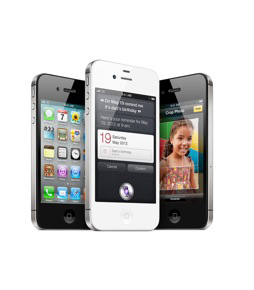A reminder that even the world's most admired company has hiring challenges
Lots of words are spilled in the HR/Talent/Recruiting space that more or less read something like this - 'Oh sure, that (insert HR/Recruiting/Benefits program of choice here), might work for Google or Apple, but there is no way that applies to us, we don't have a sexy, well-known brand.'
Said differently, it is more or less commonly accepted that companies like Google, Apple, Nike, Goldman Sachs, etc., have incredible advantages in competition for talent by virtue of their brand equity, vast resources, employer brand reputation, and the like. If you are repping one of these companies from Fortune's World's Most Admired Companies list, you would think you pretty much could dial up anyone you need and they would be sold on the opportunity. And that is at least partially, if not mostly true.
But even the World's Most Admired Company for 2015, Apple, faces the occasional recruiting challenge. Yep, I know, hard to believe. But apparently in the global fight for scarce data science talent, even Apple has some issues attracting talent. From a recent piece on The Stack titled Apple's privacy policies repel the data scientists it needs to create 'predictive' smart phones:
Just for once, it seems that Apple ‘can’t get the staff’. According to a Reuters exclusive, the Cupertino-based global device giant is falling behind in the race to create ‘predictive’ services for smartphones because its privacy policies are too protective of the end-user.
The report has crunched numbers on Apple job openings and talked to various industry insiders, many of whom agree that Apple lacks the best conditions to attract the very limited supply of data scientists necessary to leverage cloud-based services and anticipate the most minute demands of smartphone users.
The reason for the company’s difficulty in challenging the likes of Google, Facebook and Amazon for the brightest and the best new minds in data science and analysis seems to lie with its commitment to protect the privacy of its users. The report notes that data retention policies on user-centric information gathered into its Siri ‘personal assistant’ product is a reasonably generous six months, whilst information retained from the user’s exploration of Apple Maps expires after only 15 minutes
So it looks like the world's best talent in the field of data science doesn't like the fact that Apple keeps comparatively less data around upon which to practice their science. Companies like Google and Facebook in comparison, seem to offer these scientists more of a playground for them to challenge themselves with.
A couple really interesting points I think worth noting in this story, that are probably true for both the World's Most Admired Companies and for your shop as well.
1. The work, then challenge, and the opportunity to be your personal best in your field still trumps the 'Brand' or the reputation of the company in general. Apple might be the #1 company in the world to work for, but for this group of highly scarce and talented folks it is the work that matters more.
2. Often the factors that influence a candidate's decision about joining an organization sit well out of reach of the org's HR/Recruiting leadership. No matter how much influence the HR and Talent organization has at Apple, they are never going to impact Apple's customer data storage policies and practices.
3. For a big company like Apple with lots of resources, acquisition might be the best (and only) way to get the talent that they require. The related Reuters study notes that Apple's 'acquisitions of startups such as podcasting app Swell, social media analytics firm Topsy and personal assistant app Cue have also expanded Apple’s pool of experts in the field.'
Interesting times out there when even the most well-known, most valuable and most admired companies is facing recruiting issues. I guess that sort of makes the rest of us feel good, maybe a little anyway.
Have a great Wednesday!

 Steve
Steve


